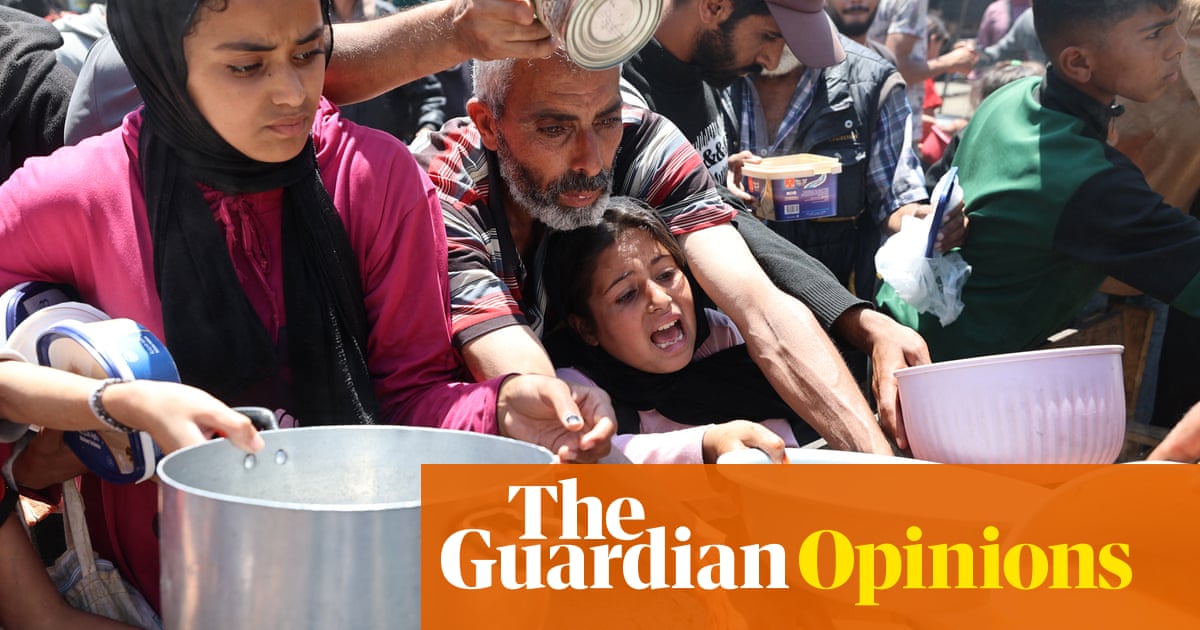It has been more than 30 hours since I last ate. At times, I go as long as two days without food. For most people around the world, the word hunger is a fleeting feeling, easily fixed with a trip to the kitchen or a nearby store. Saying “I’m hungry” is routine, almost meaningless. But imagine if every time you felt hungry, there was nothing to eat – no food, no relief, just emptiness. This has been my daily reality in theGazaStrip for over a month.
Since the beginning of the war, the Israeli occupation has controlled the quantity and type of foodallowed into Gaza. When a ceasefire was agreed, I hoped that everything I had endured was behind me. I held on to the hope of a better life, convinced that hunger would become something in my past. But just as I began to regain my health, thebombing and destruction returned– and with them, the starvation.
For nearly two months, food and medicine has been prevented from entering Gaza. Each morning, I wake up hoping to have breakfast, only to find nothing. Then in the afternoon, I go shopping with my mother, hoping we’ll find something to cook – but vegetables have nearly vanished from the markets, and even bread is becoming scarce. Shelves stand empty. At this rate, it’s only a matter of time before there’s nothing left to eat. And even then, what does a small meal every two or three days really mean in the face of starvation?
Hunger was never part of our lives before. We used to cook the most delicious meals, order our favourite foods, and enjoy them without a second thought. Now, we remember those days not just as part of the past, but like they belonged to another world entirely – a world that was safer, kinder, and so much more beautiful.
The blockade has forced me – and so many others – intocollective punishment, facing hunger and hardship for something we had no part in. I’m just a young woman who loves life in all its beautiful forms, yet I’m made to suffer and watch my people suffer as a form of pressure to return the hostages. How is that fair? It’s not. It’s deeply unjust. As a young woman who should be in full physical and mental health, I feel my body growing weaker, more fragile with each passing moment.
I’ve read on news sites that poverty in Gaza has reached unprecedented levels. But this is not poverty, it is famine. The Israeli occupation is directly responsible for creating this humanitarian catastrophe. Children in the Gaza Strip have begun todie of hunger. Unlike adults, they cannot endure such suffering. I think of them, imagining the food they long for but can’t have – and the thought is heartbreaking.
Fear of death casts a long shadow over life in a place under occupation. Everyone who has an illness or injury can no longer access the medicine they need. In this vast prison that is Gaza, death comes in many forms: by sniper fire, by bombing, by starvation, by lack of medical care, or even from great fear. We hear that Israel has plans tocompletely capture Gazaand remain here, displacing so many of us. We are dying, we are starving. Are we soon to be homeless, stateless?
It feels as though the Gaza Strip is no longer part of this world, as if we’re living in some distant, forgotten galaxy. Our lives are marked by suffering and strangeness, while the rest of the world carries on as if our reality doesn’t exist.
I never truly understood the feeling of hunger – its depth, its cruelty, its ugliness – until I experienced it fully, in every painful detail.
Aya Al-Hattab is a writer in Gaza
